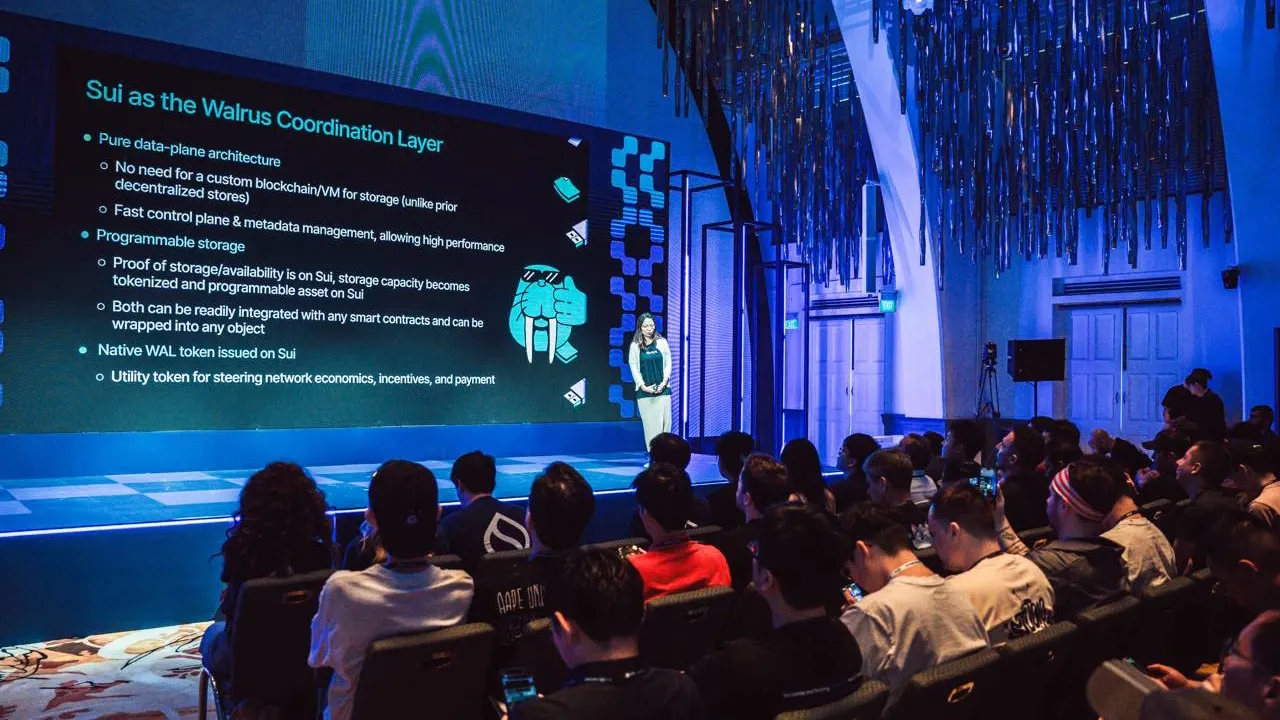Mysten Labs has taken the wraps off its decentralized storage and data availability protocol Walrus, at its Sui Builder House event in Singapore.
"Recognizing the importance of data and the lack of storage innovation in recent years, Mysten has chosen decentralized storage as the next key area to tackle to make Web3 a reality," Janet Wu, Director of Product at Mysten Labs, told Decrypt.
Just in from #BuilderHouse Singapore…Walrus will officially be an independent Delegated Proof-of-Stake Network, governed and incentivized by its native utility token, WAL. pic.twitter.com/bZz6sw7vRh
— Walrus (@WalrusProtocol) September 17, 2024
The release of the Walrus whitepaper and the announcement of the upcoming WAL token will see the project move to the next stage of its development, following its devnet launch in June 2024.
The decentralized storage platform “unlocks Web3 for applications such as social networks with rich content requirements, collaborative platforms such as GDocs, and AI training with data provenance guarantees,” said Mysten Labs researcher Lefteris Kokoris-Kogias in a tweet.
Decentralized storage enables data to be “stored across multiple nodes, providing robust resistance to censorship and enhanced reliability,” Kokoris-Kogias explained.
Walrus is a “next-generation” decentralized storage platform, Sui Product Marketing Manager Casson Rosenblatt told Decrypt. Built atop layer-1 network Sui, Walrus stores data as files called “blobs.”
At its heart is a new data encoding algorithm, Red Stuff—leveraging a novel algorithm based on fountain codes, whose simplicity “allows for the encoding of large files in a single pass, resulting in significantly faster processing,” according to the Walrus whitepaper.
WAL tokenomics
During a presentation, Janet Wu, Director of Product at Mysten Labs, explained the tokenomics behind Walrus’ proof of stake token WAL.
WAL’s staking model enables nodes to receive data in proportion to their relative stake, Wu explained, with storage prices set collectively by storage nodes and payments from users passing back to stakers in the form of staking rewards. Attestation sees storage nodes undertake “asynchronous data challenges” in order to ensure they retain data, with their stake being slashed should they fail the challenges.

WAL also functions as a governance token, with stakers using it to vote on parameter adjustments. Its tokenomics are designed to allow Walrus’ storage nodes to “regroup and function,” as well as incentivizing participants to “work as a decentralized system,” Wu explained.
With the Walrus testnet set to launch later this year, the platform is already seeing interest from projects looking to leverage its decentralized storage offering. Breaking the Ice, a Walrus Devnet Hackathon, has already seen 60 submitted projects and 288 registered participants, with a $50,000 prize pool on offer for the winning teams.
Decrypt itself has onboarded with Walrus, and is set to store its news articles, videos and photos on the protocol.
“Any builder from any chain is able to build on Walrus,” said Wu. “While Walrus uses Sui as the underlying coordination layer, Walrus is chain-agnostic and any apps from any chain can work with Walrus,” she explained, adding that the protocol is designed for “anyone who's looking to decentralize their stack, to decentralize their storage. You can build Web2 apps that use Walrus to take advantage of its resiliency and transparency.”
Sponsored post by Walrus
Learn More about partnering with Decrypt.

